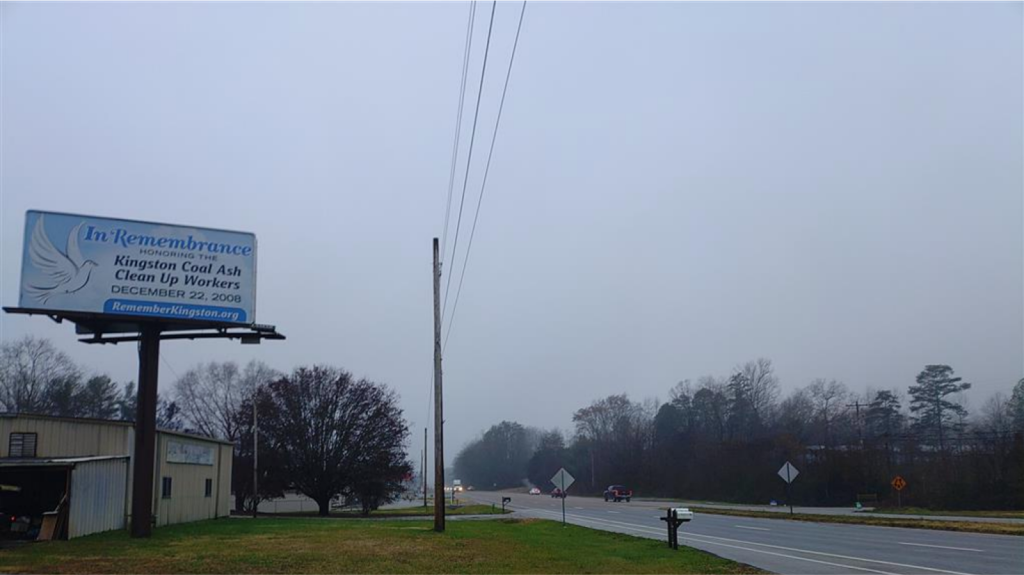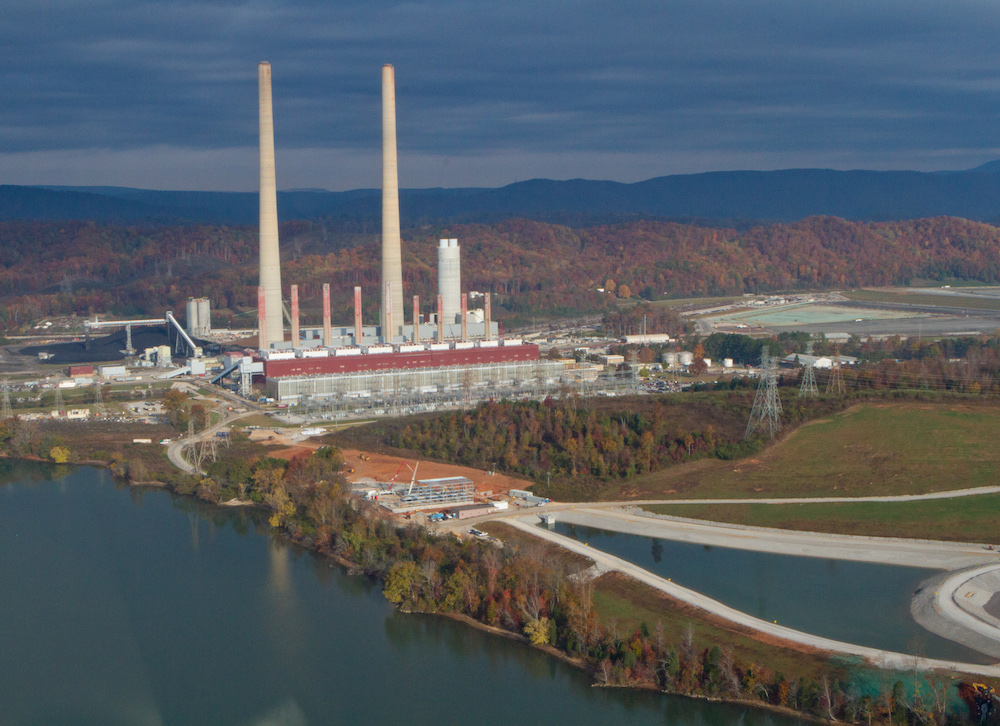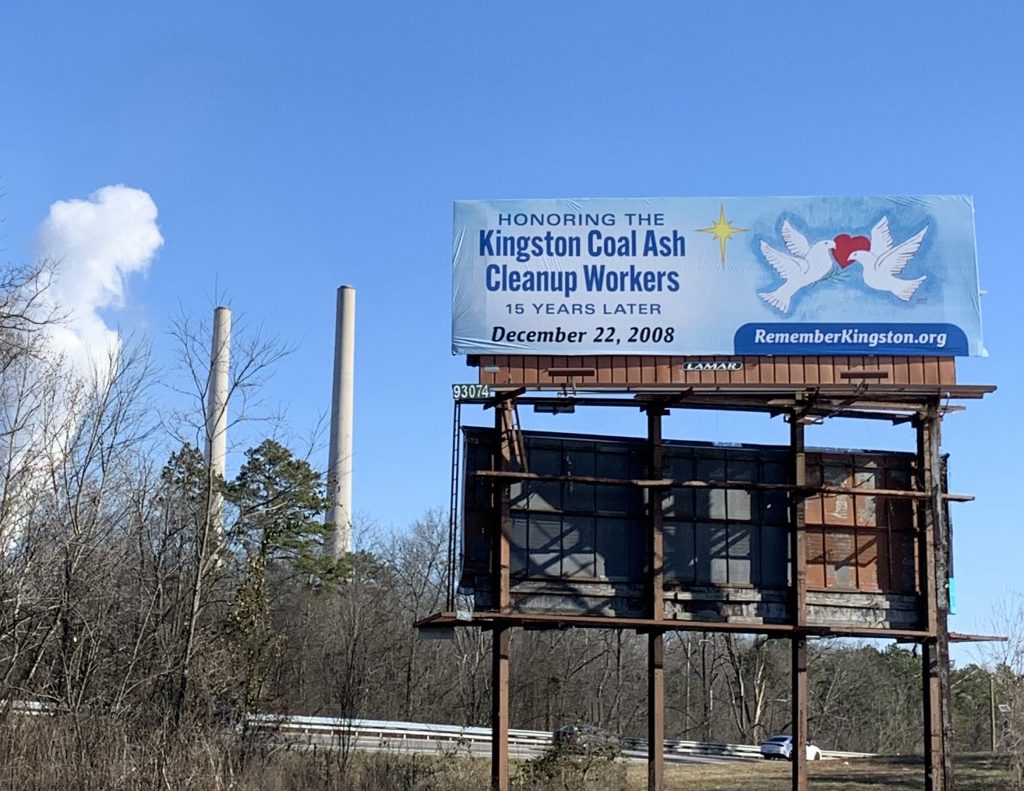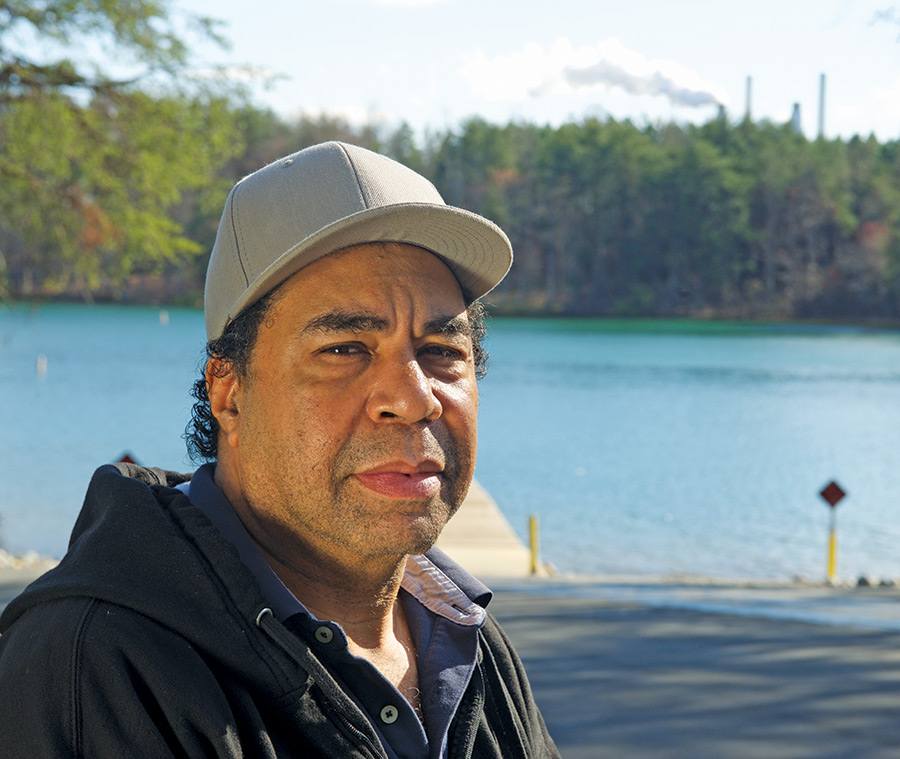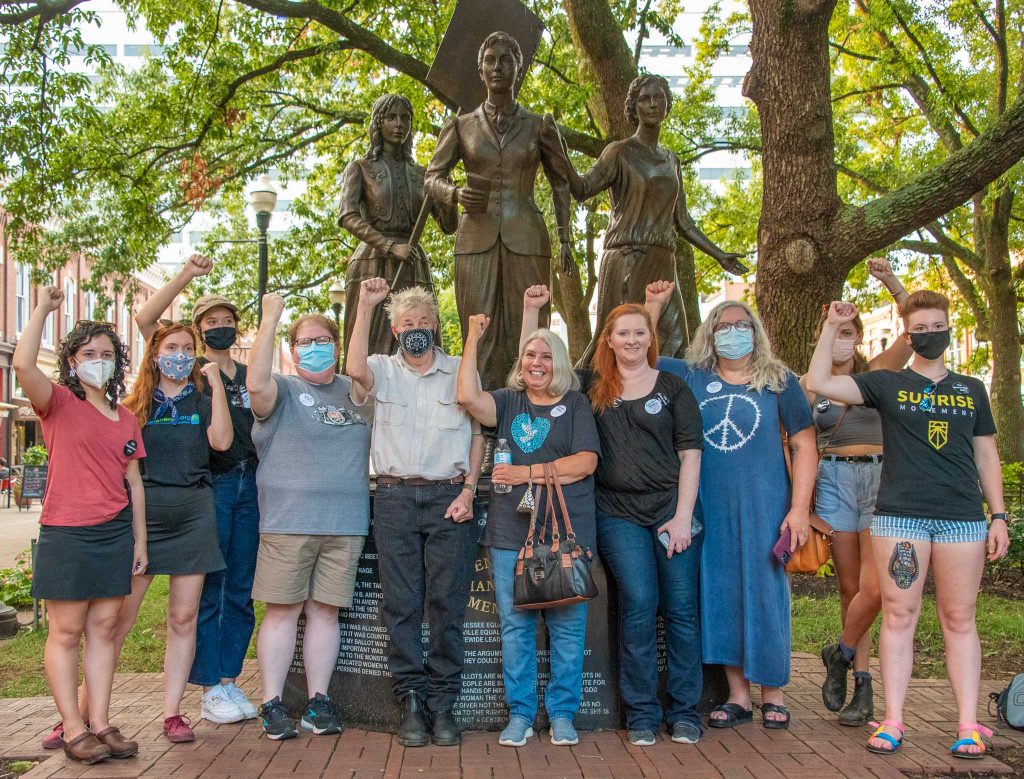Posts Tagged ‘Coal Ash’
Thousands urge EPA to regulate coal dust from trains polluting communities and waterways
Appalachian Voices submitted a letter signed by nearly 4,000 individuals urging the Trump administration’s newly appointed Environmental Protection Agency administrator, Lee Zeldin, to develop new protections from coal dust that blows off of trains, contaminating waterways and posing serious public health risks.
Read MoreStatement on utilities’ request to roll back coal ash and greenhouse gas protections
If granted, Duke Energy and other utilities’ request to weaken coal ash and air pollution rules would harm hard-working families living near power plants.
Read MoreIn “Valley so Low,” an environmental disaster creates a crisis for cleanup workers – and restitution proves elusive
“Valley So Low” explores 15 years of harm to the workers who cleaned up the Kingston Coal Ash Spill and their pursuit of justice.
Read MoreFor 16th Anniversary of Kingston Coal Ash Spill, Communities Honor Cleanup Workers
For the 16th anniversary of the devastating Kingston Coal Ash Spill, families and allies of cleanup workers, including the Sierra Club and Appalachian Voices, set up billboards commemorating the heroic cleanup workers whose health has been impacted by the exposure to coal ash.
Read MoreNew limits on power plant pollution aim to protect communities and the climate
EPA Action to Prevent Power Plant Pollution
New EPA rules to regulate pollution from coal and gas power plants could have major impacts on public health and the environment.
Read MoreCommunities honor Kingston coal ash cleanup workers with video, billboards, and ceremony for 15th spill anniversary
To honor cleanup workers for the 15th anniversary of TVA’s Kingston Coal Ash Spill, communities released a powerful short video and set up five billboards. Roane County, which just established the spill anniversary as an annual day of remembrance for the workers, will also hold a ceremony on Dec. 22 at 10 a.m. ET on the steps of the Roane County Courthouse: 200 E Race St #11, Kingston, TN 37763.
Read MoreRemembering David Hairston
It is with great sorrow that we reflect on the life of David Hairston, a profoundly inspirational community leader, a deeply respected member of the Appalachian Voices Board of Directors, and a treasured friend to many.
Read MoreTurning Coal Ash into Art
In Walnut Cove — a community whose history has been tainted by coal ash for decades — The Lilies Project has turned coal ash into art, and is expanding to encompass the town’s story beyond coal ash.
Read MoreNo Easy Answers on Coal Ash Cleanup
To protect groundwater and community health, coal ash ponds must be cleaned up. But, as communities in Tennessee have learned, safely removing the toxic waste brings its own set of challenges.
Read More



